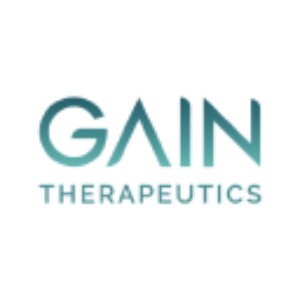Gain Therapeutics Presents Parkinson’s Disease Preclinical Study Results at Society for Neuroscience Annual Meeting
Gain Therapeutics (Nasdaq: GANX) presented promising preclinical data on GT-02287, a compound targeting glucocerebrosidase (GCase) for Parkinson’s Disease, at the Society for Neuroscience Annual Meeting. The findings revealed that GT-02287 significantly reduced alpha-synuclein pathology and neuroinflammation while improving behavioral deficits in an animal model. With a favorable toxicity profile, this orally bioavailable compound shows potential in addressing unmet needs for patients suffering from Parkinson’s, particularly those with GBA1 mutations.
- GT-02287 reduced alpha-synuclein pathology and inflammation in vivo.
- Significantly improved behavioral deficits in Parkinson's animal model.
- Demonstrated a favorable toxicity profile.
- Potential for further development toward clinical trials.
- None.
Insights
Analyzing...
Brain-penetrant structurally targeted allosteric regulators for glucocerebrosidase (GCase) show promising in vivo pharmacological activity in Parkinson’s Disease animal model
BETHESDA, Md., Nov. 11, 2021 (GLOBE NEWSWIRE) -- Gain Therapeutics, Inc. (Nasdaq: GANX) (“Gain”, or the “Company”), a biotechnology company focused on identifying and optimizing allosteric binding sites never before targeted in neurodegenerative diseases and lysosomal storage disorders, today presented preclinical data during a poster session at the Society for Neuroscience Annual Meeting, being held virtually from November 8 – 11, 2021. The findings demonstrate that the Company’s lead compound GT-02287, which specifically binds to lysosomal enzyme glucocerebrosidase (GCase), reduces alpha-synuclein pathology and neuroinflammation in a dose-dependent manner, as well as improves behavioral deficits in an animal model of Parkinson’s Disease.
“This positive set of data point to the lysosomal GCase enzyme as a promising target for the restoration of key biological activities found to be impaired in GBA1-related as well as idiopathic Parkinson’s Disease patients,” said Eric Richman, Chief Executive Officer of Gain. “We are working diligently to advance this breakthrough compound to the clinic and bring it one step closer to meeting the currently unaddressed needs of patients with this debilitating disease.”
Parkinson’s Disease is a neurodegenerative disease affecting millions of people worldwide. Enzymatic protein misfolding is a characteristic of PD and many other neurodegenerative diseases. Up to 10 percent of all Parkinson’s patients have a GBA1 gene mutation, which results in the misfolding and subsequent GCase dysfunction, causing the toxic accumulation of synuclein and neuronal cell death. PD patients with GBA1 mutations have an early onset of the disease, faster progression, and non-motor symptoms.
Summary of data from Parkinson’s rotenone-induction animal model used to test the ability of GT-02287 in reducing some of the main pathophysiological features of PD. The orally bioavailable and brain penetrant allosteric modulator GT-02287 achieved the following results:
- Improved behavioral deficits that characterize Parkinson’s Disease
- Reduced synuclein pathology and inflammation
- Displayed a favorable toxicity profile
- Warrants further development towards the clinic
Gain identified the GT-02287 Structurally Targeted Allosteric Regulator (STAR) candidate through its proprietary SEE-Tx® platform. STARs are small molecule therapies that have significant advantages over the current standard of care for disorders associated with protein misfolding, including most enzyme replacement therapies and gene therapies. They can be administered as a simple oral pill and can reach organs and tissues not typically accessible through current therapeutic options, including the brain, bone and cartilage. In addition, the Company believes that STARs are relatively easy and cost-effective to manufacture.
About Gain Therapeutics, Inc.
Gain Therapeutics, Inc. is positioned at the confluence of technology and healthcare and focused on redefining drug discovery with its SEE-Tx™ target identification platform. By identifying and optimizing allosteric binding sites that have never before been targeted, Gain is unlocking new treatment options for difficult-to-treat disorders characterized by protein misfolding. Gain was established in 2017 with the support of its founders and institutional investors. It has been awarded funding support from The Michael J. Fox Foundation for Parkinson’s Research (MJFF) and The Silverstein Foundation for Parkinson’s with GBA, as well as from the Eurostars-2 joint program with co-funding from the European Union Horizon 2020 research and Innosuisse. In July 2020, Gain Therapeutics, Inc. completed a share exchange with Gain Therapeutics, SA, a Swiss corporation, whereby GT Gain Therapeutics SA became a wholly owned subsidiary of Gain Therapeutics, Inc. For periods and at dates prior to the Corporate Reorganization, the consolidated financial statements were prepared based on the historical financial statements of GT Gain Therapeutics SA.
For more information, please visit https://www.gaintherapeutics.com
Forward-Looking Statements
Any statements in this release that are not historical facts may be considered to be “forward-looking statements.” Forward-looking statements are based on management’s current expectations and are subject to risks and uncertainties which may cause results to differ materially and adversely from the statements contained herein. Such statements include, but are not limited to, statements regarding the market opportunity for Gain’s product candidates, and the business strategies and development plans of Gain. Some of the potential risks and uncertainties that could cause actual results to differ from those expected include Gain’s ability to: make commercially available its products and technologies in a timely manner or at all; enter into strategic alliances, including arrangements for the development and distribution of its products; obtain intellectual property protection for its assets; accurately estimate and manage its expenses and cash burn and raise additional funds when necessary. Undue reliance should not be placed on forward-looking statements, which speak only as of the date they are made. Except as required by law, Gain does not undertake any obligation to update any forward-looking statements to reflect new information, events or circumstances after the date they are made, or to reflect the occurrence of unanticipated events.
Investor & Media Contacts:
Gain Therapeutics Investor Contact:
Daniel Ferry
LifeSci Advisors
+1 (617) 430-7576
daniel@lifesciadvisors.com
Gain Therapeutics Media Contact:
Joleen Schultz
Joleen Schultz & Associates
+1 760-271-8150
joleen@joleenschultzassociates.com








